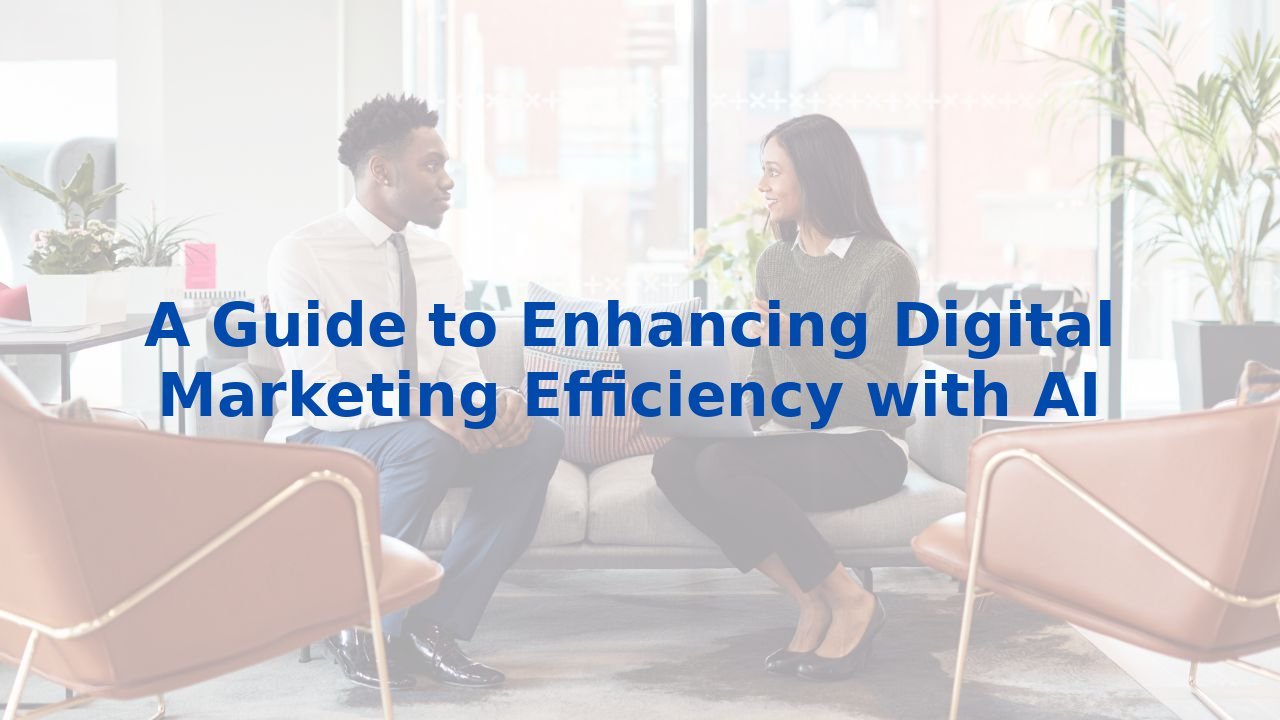A Guide to Enhancing Digital Marketing Efficiency with AI
A Guide to Enhancing Digital Marketing Efficiency with AI
In today’s fast-paced digital world, businesses are constantly searching for methods to optimize their marketing strategies. Enter Artificial Intelligence (AI)—a game changer that's transforming how companies engage, understand, and reach their audiences. By incorporating AI into digital marketing processes, organizations can not only streamline operations but also achieve remarkable efficiencies.
1. Automating Repetitive Tasks
Repetition is the nemesis of productivity. One of the standout benefits of AI in digital marketing is its ability to automate tedious tasks like data entry, email marketing, and social media management. Instead of spending countless hours on these activities, marketers can utilize AI tools to work smarter, not harder.
Consider email communication. AI can draft personalized messages by understanding context and tone, thereby minimizing the time spent on correspondence. By automating data entry through advanced algorithms that extract relevant information, businesses can free up their marketers to focus on strategic decision-making rather than mundane tasks.
2. Enhancing Content Creation
In a digital landscape where content is king, high-quality production is essential. AI plays a pivotal role in accelerating content creation, making it feasible to maintain a consistent online presence without sacrificing quality. Generative AI tools can create everything from articles and marketing collateral to translations. This means your content calendar can remain full, and your messaging can consistently hit the right notes.
Moreover, AI's ability to analyze customer data allows businesses to tailor their content and advertising efforts to specific audience segments. By understanding who your audience is and what interests them, marketers can craft messages that resonate better, ensuring higher engagement rates.
3. Improving Campaign Performance
AI’s analytical capabilities extend beyond execution; they offer predictive insights that can transform campaign performance. By scrutinizing historical data, AI can identify trends that inform future marketing strategies. Imagine launching a campaign with insights into what’s likely to perform well—this is no longer a futuristic fantasy; it's a current reality.
Using predictive analytics, marketers can optimize their strategies by identifying the most effective channels for audience engagement. It empowers organizations to ensure that their marketing efforts are not merely based on gut feelings but are backed by data-driven insights.
4. Optimizing Resource Allocation
In a landscape where resources are often stretched thin, optimizing allocation becomes crucial. AI tools can assess various factors such as team skill sets, workload, and project requirements to ensure that the right people are assigned to the right tasks. This means not only maximizing productivity but also minimizing bottlenecks that slow down projects.
For digital marketing teams, this optimization translates into better campaign outcomes. When team members are assigned tasks aligned with their strengths and capacities, efficiency flourishes. This not only leads to better work-life balance for employees, but it also enhances overall business performance.
5. The Value of Employee Training for AI
While AI offers phenomenal enhancements to business processes, the human element remains irreplaceable. Training employees to effectively leverage AI is paramount. The benefits of upskilling your workforce are multifold:
- Skill Development: Equipping employees with knowledge in data analysis, machine learning, and content creation enables them to harness AI tools to their full potential.
- Adaptability: As AI technology evolves, a trained workforce can swiftly adapt, allowing organizations to stay ahead of the learning curve.
- Strategic Decision-Making: A foundational understanding of AI empowers employees to make informed choices regarding campaign performance and resource distribution.
Organizations that prioritize AI training witness transformative outcomes—increased decision-making capabilities, improved efficiency, and enhanced collaboration among teams.
Conclusion
Artificial Intelligence is more than just a technological advancement; it's a necessity for businesses aiming to thrive in the ever-evolving digital marketplace. By automating repetitive tasks, enhancing content creation, and improving campaign performance, AI equips organizations with the tools they need to achieve unprecedented efficiency. However, maximizing these tools requires a well-trained workforce adept at navigating AI technologies. Investing in employee training for AI will not only improve individual skill sets but will also drive organizational success—positioning businesses to succeed in a competitive landscape. The future of digital marketing is not just bright; it's intelligently automated.



